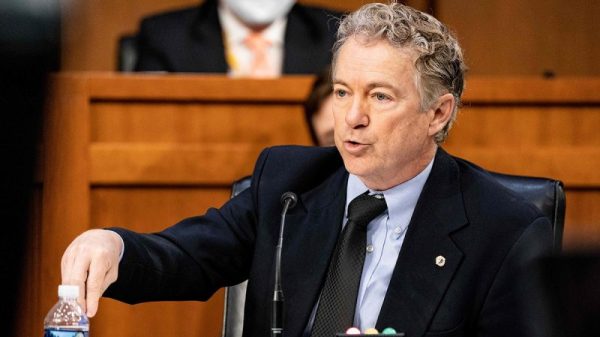On a fairly regular basis, Americans are warned that the federal government may no longer be able to meet its legal obligations if the debt ceiling isn’t raised. The result: default, with financial chaos to follow. Despite that stark warning, political agreement remains elusive. Liberals will not accept meaningful spending cuts and conservatives will not accept meaningful tax increases. To be sure, our budget problems need to be addressed, but recurring battles over the debt ceiling have not been constructive.
What do legal experts say about default?
A few imaginative lawyers have argued that we should address the possibility of default, not by spending less or taxing more but by applying the Public Debt Clause in Section 4 of the 14th Amendment. Essentially, they claim the Constitution forbids default and, consequently, a debt ceiling that triggers default is unconstitutional.
The Public Debt Clause states that, “The validity of the public debt of the United States, authorized by law, … shall not be questioned.” That 1868 provision was intended primarily to prevent repudiation of Civil War debts. But the Supreme Court in Perry v. United States (1935) held that the provision covers all federal debt. The constitutional text, said the Court, applies “to the government bonds in question, and to others duly authorized by the Congress.” Still, that leaves this question: What constitutes public debt “duly authorized by the Congress”?
What constitutes public debt “duly authorized by the Congress”?
One view is that only issued and outstanding debt has been authorized by law and is thus covered by the 14th Amendment. The counter-argument I subscribe to is that Congress’s appropriation of funds for subsequent expenditure is equivalent to authorizing any debt needed to finance the expenditure. Accordingly, the Public Debt Clause would apply not only to existing debt but also to debt that Congress implicitly authorizes when appropriations are enacted. If Congress wants to question the wisdom of issuing more debt, it can and should do so during the appropriations process rather than by imposing a debt limit.
Yes, it’s unusual for the Constitution to expand executive powers by implication. But the spending power is itself implicit—appearing nowhere in the Constitution. Yet no one questions that the spending power can be inferred from other authorizations, e.g., Congress’s power to “lay and collect Taxes.” After all, the power to raise money is self-evidently for the purpose of spending the money.
Similarly, but in reverse, the authority to spend implies the authority to generate the funds to be spent. Consequently, any new debt that’s required to fund approved spending is “authorized by law,” even if the added borrowing were to violate an existing debt ceiling. Under those circumstances, the president would be bound to do whatever is necessary to “take Care that the [Public Debt Clause] be faithfully executed,” as mandated by Article II, Section 3 of the Constitution.
Further, the “later-in-time” rule helps explain the difference between existing and authorized debt. To illustrate: If existing debt is currently at its limit, say $X, and Congress subsequently approves an appropriation, that appropriation—because it’s later-in-time—implicitly authorizes the debt to exceed $X. But conversely, if an appropriation of $X is initially approved and the debt ceiling is subsequently set below the level that would allow $X of additional borrowing, that sequence would not authorize the issuance of new debt to finance the appropriation. The Treasury would have to find an alternative source of funds.
Bottom line: Is the debt ceiling constitutional and effective?
Here are my conclusions, tempered by an awareness that legal authorities across the ideological spectrum have varied views: First, duly enacted appropriations are a means by which public debt can be “authorized by law.” Second, default on public debt plainly casts doubt on the debt’s “validity” and would, therefore, be unconstitutional under the Public Debt Clause. Third, if Congress refuses to raise the debt ceiling, and no other sources are available to pay for a new appropriation, the president would be justified in treating the appropriation as an implicit authorization to raise the ceiling. In other words, he could disregard the current statutory borrowing limit.
The debt ceiling has not been effective in attaining its presumed objective, i.e., restraining government spending. Moreover, most economists and legal scholars agree that nothing good has come from repeated attempts to use the debt ceiling as leverage. The constitutional implications, the effect on capital markets, and the status of the dollar as the world’s reserve currency should convince the administration and Congress that they, not the courts, must restore fiscal sanity.
If the goal is financial discipline, the debt ceiling is not a viable substitute for rigorous scrutiny of appropriations. Americans would be better off by repealing the debt ceiling and avoiding the periodic hand-wringing over breaching a performative number.





























